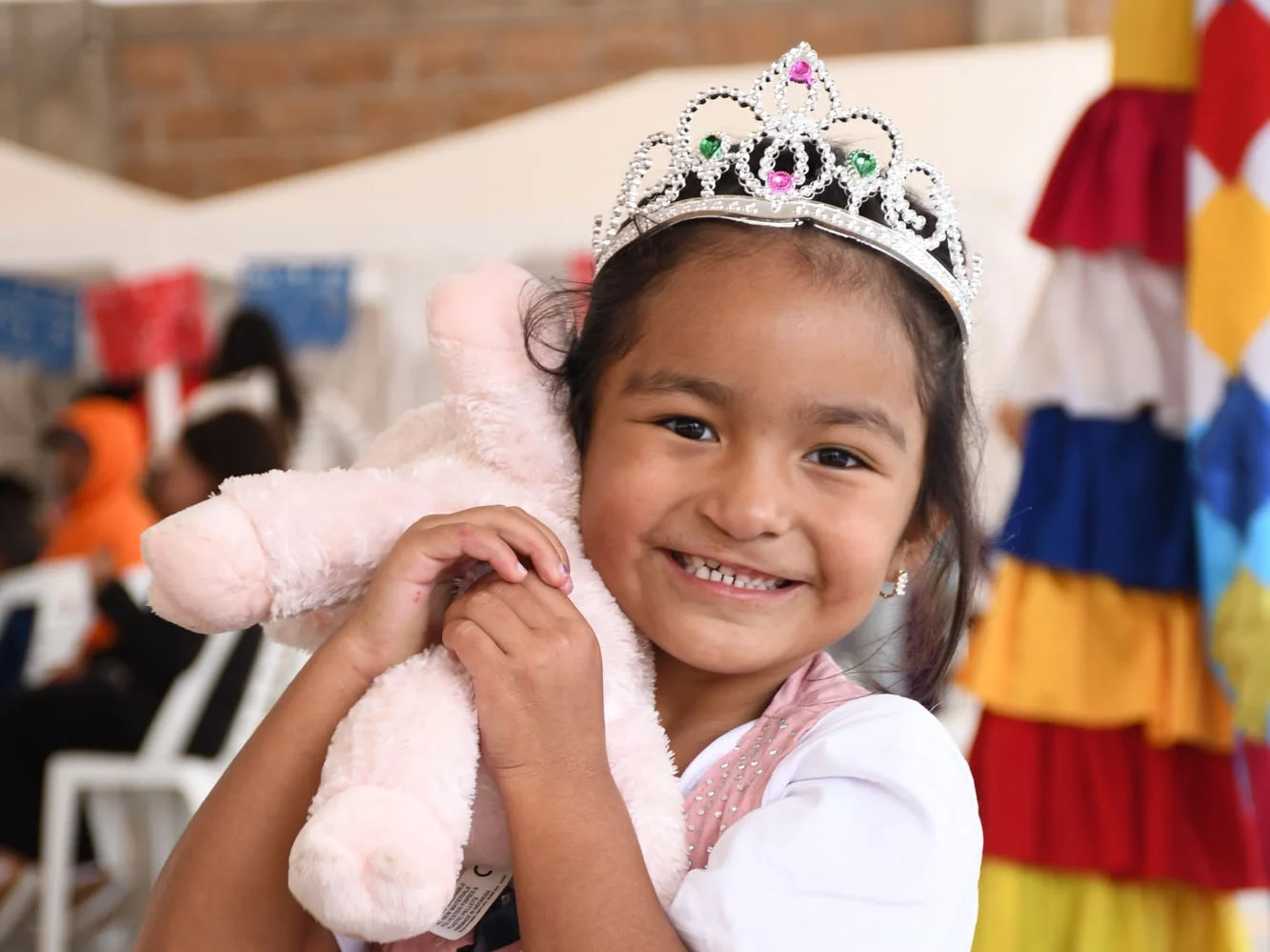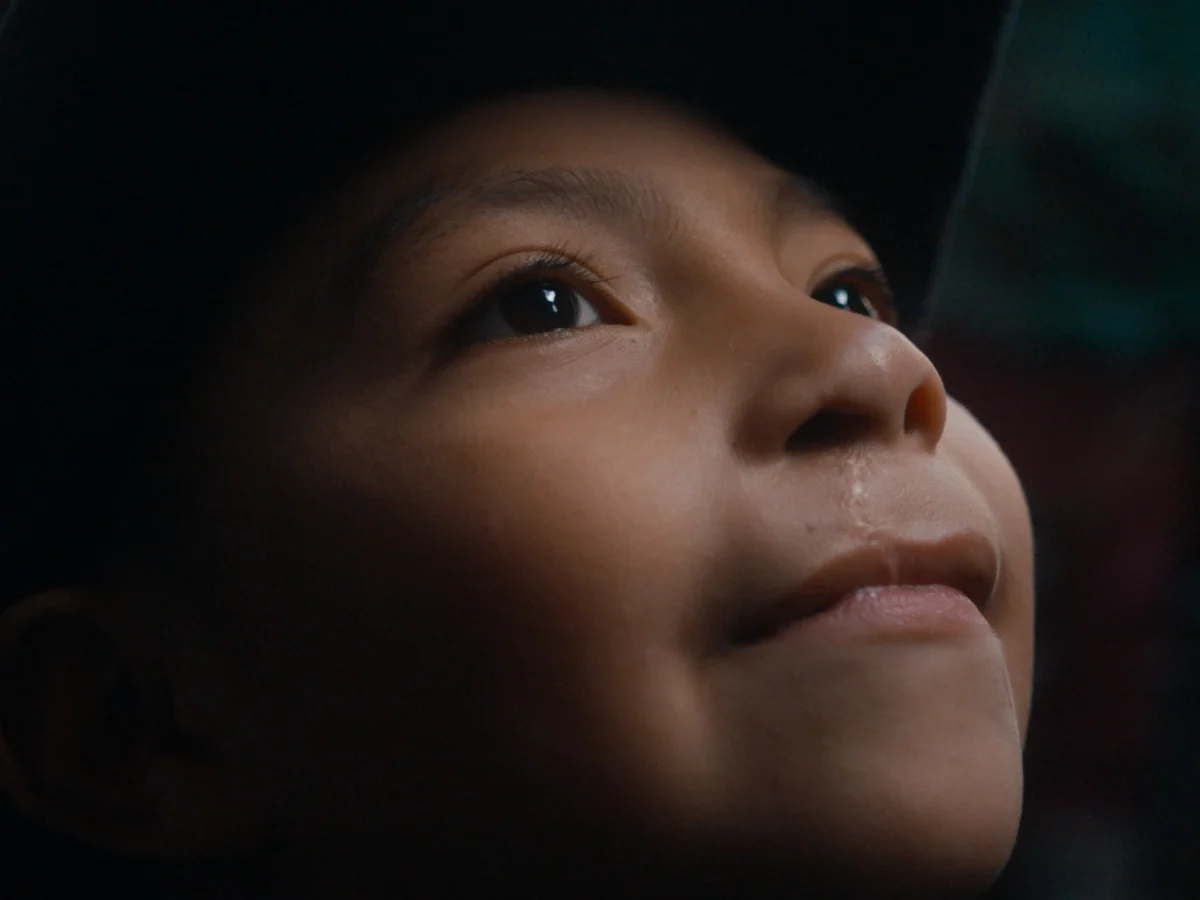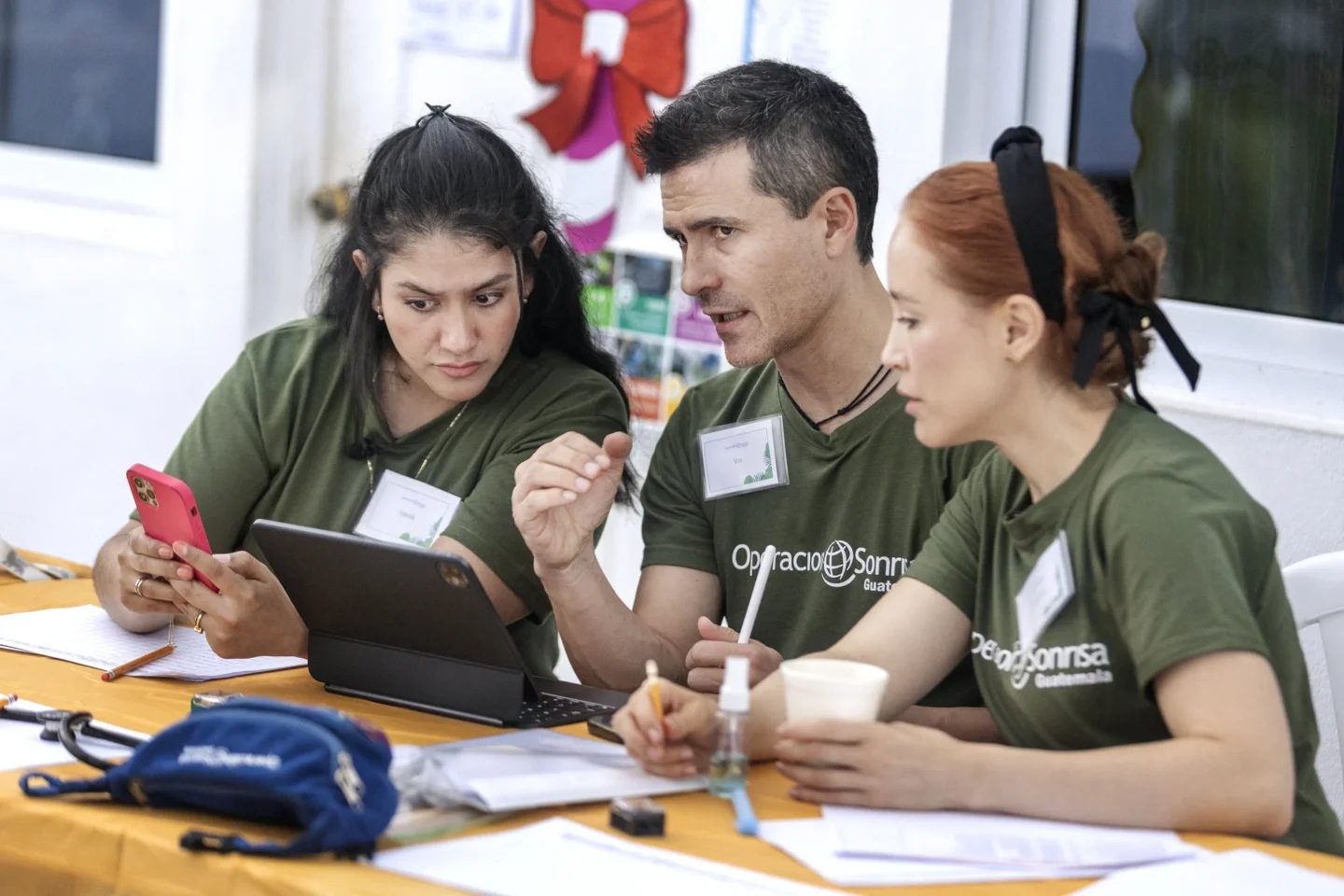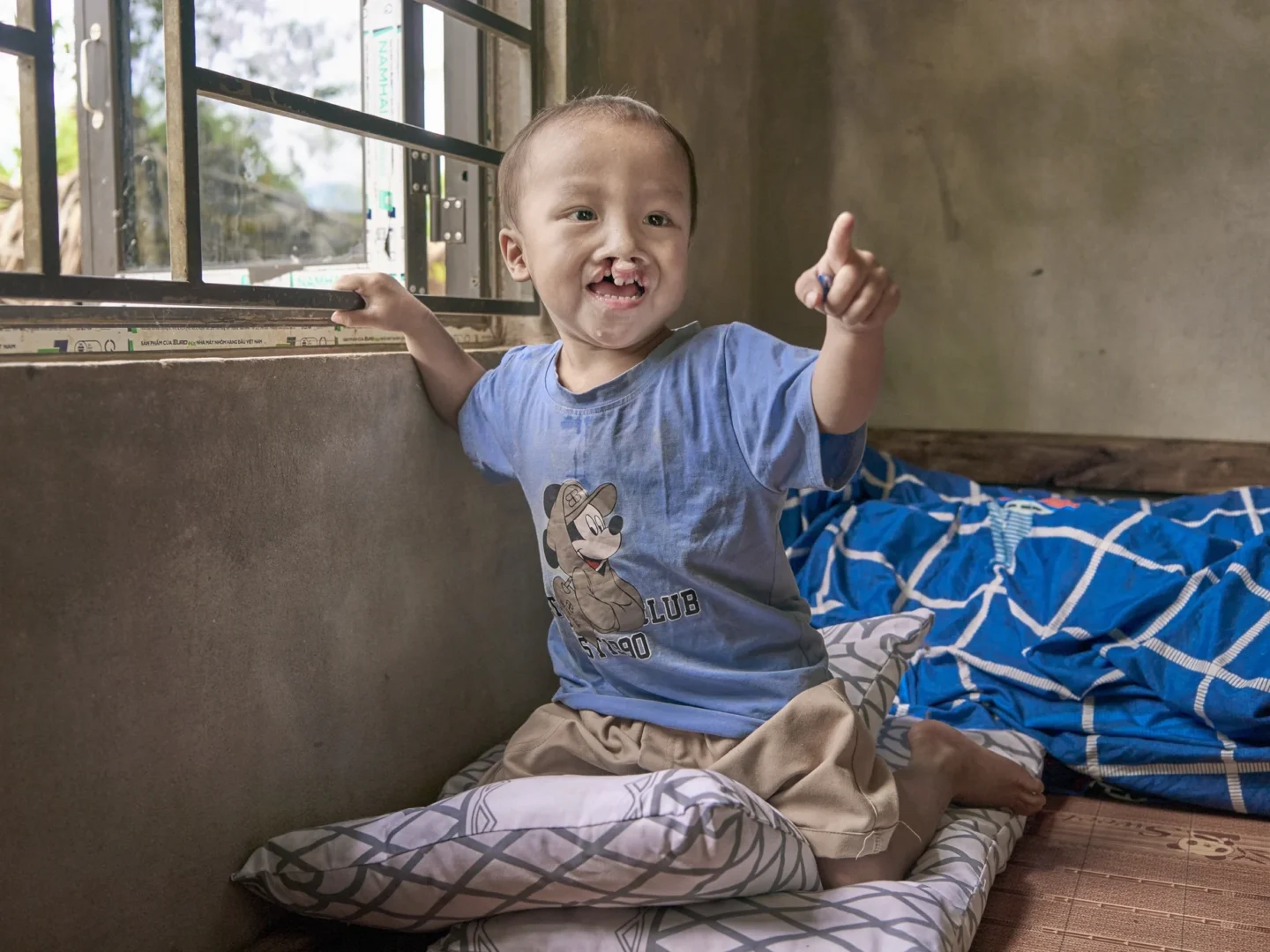Patients
For Patients, The Impact of Speech Therapy Continues Far After Cleft Surgery
Everyone deserves to be understood. Operation Smile’s comprehensive care approach is building confidence and social integration.
Cleft surgery transforms lives and has an immediate impact on patients. But cleft care is so much more than a single surgery. Comprehensive care is needed to support every step of a patient’s journey – from nutrition to mental health to speech therapy, which is one of the most crucial steps.
“We provide surgery, but we don’t stop there,” says Viet Nguyen, vice president of development, Asia Pacific at Operation Smile. “We want to make sure that [our patients] go back to school, so that they can become better citizens. That’s why we make sure to provide them with extra service, including speech therapy.”
Speech therapy can begin from the very first day a child is born, starting with feeding techniques and guidance for parents, and continue through school years and even into adulthood. It provides patients with tools and strategies that help them integrate into their communities and society.
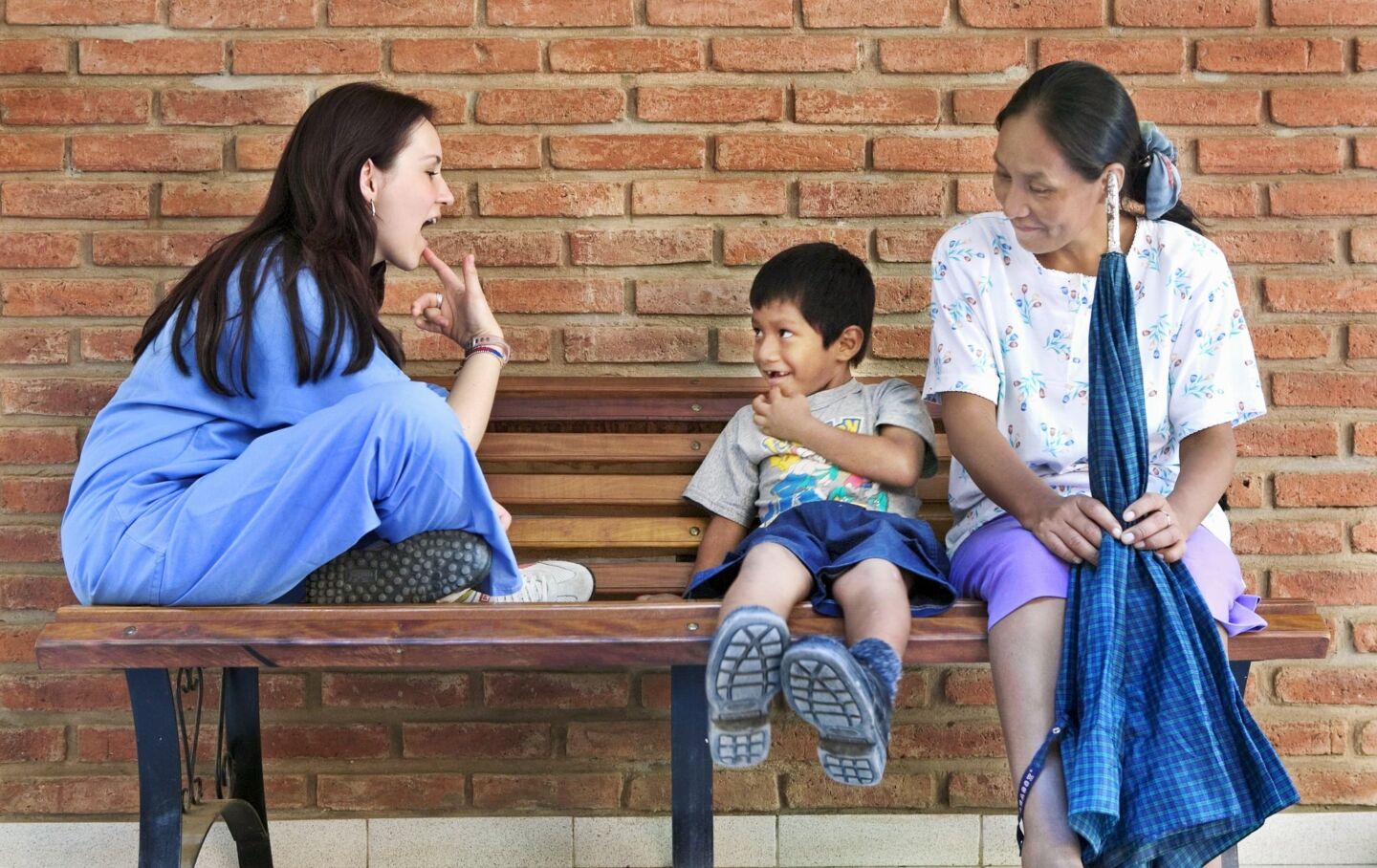
“In my opinion, speech therapy can change parents’ expectations about their child’s condition and abilities,” says Scarlet Gomez, a speech consultant for Operation Smile. “It allows children to grow and develop like any other child, while knowing they have a team supporting and encouraging them every step of the way.”
In the countries Operation Smile works in, speech therapy is not always available. Operation Smile is committed to strengthening this specialty within these health systems and has made training and education an important part of its commitment to comprehensive care. Its volunteers provide multidisciplinary services to patients living with cleft conditions, including nutrient, early language development and preventive and corrective speech therapy. As part of the team that supports the development of materials and training for future health care volunteers, Gomez explains that Operation Smile provides both theoretical and practical training, including workshops, ongoing education and opportunities for colleagues to exchange knowledge. “This education is important because it allows health care workers to grow in their skills and understanding around patients with cleft conditions, while creating opportunities in countries and places that need it,” she says.
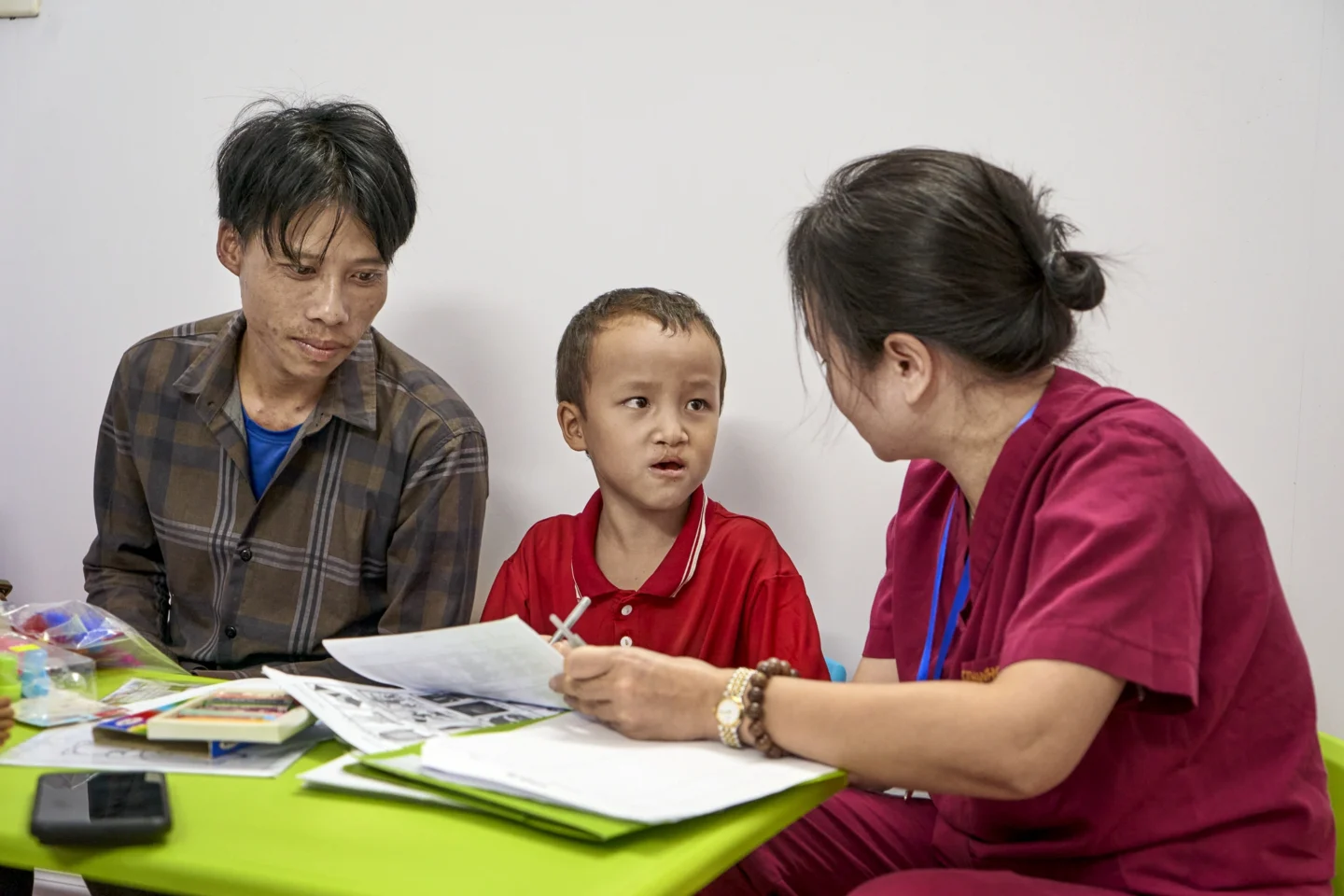
In addition to training health care providers, the organization also recognizes the importance of educating parents and family members. “During our speech therapy sessions, training is conducted with the involvement of parents,” explains Nguyễn Thị Thanh Châm, M.D., at the Vietnam Cuba Friendship Hospital. “They can see how the child is being trained and practice at home.”
For the patients and their families, the impact is immeasurable.
“I feel that the program has helped my family,” says Lanh in Vietnam, whose 8-year-old son, Vien, is receiving speech therapy from Nguyen. “Now my child can speak like other children and speak like other people. My family is very happy.”
Support Speech Therapy
Your gift to Operation Smile helps to provide comprehensive cleft care, including speech therapy, for children around the world.





